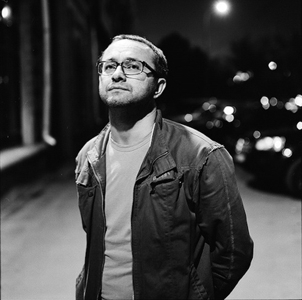The director of Leviathan is back with another bleak look at a broken family
05/17/2017
Russia has always been a cold and dreary place in the cinema of Andrey Zyvagintsev, who has dealt with family grievances against a backdrop of social commentary ever since his 2003 debut The Return. But it’s an especially domineering fixation in Loveless, which couldn’t have a more accurate title. The director’s fifth feature (and highly anticipated followup to his masterful Leviathan) follows the travails of a couple on the verge of splitting up, and the devastating impact that decision has on their 12-year-old child, who decides to flee. They spend most of the movie searching for him, but Loveless focuses less on the mystery than the grim circumstances responsible for it.
While not the same league as Leviathan, Zyvagintsev’s latest slow-burn look at anguished people tortured by problems beyond their control displays his mastery of the form. A bleak, disquieting drama sustained by its performances and tone, the movie is such a haunting experience that it remains absorbing even when it doesn’t go anywhere. Zyvagintsev frontloads the drama with exposition, quickly establishing the somber dynamic between Zhenya (Maryana Spivak) and Boris (Alexey Rozin), who bicker at length about their impending plans to go their separate ways.
It doesn’t take long to establish just how much they’ve already divested from the idea of maintaining some modicum of involvement in their child’s life: Boris wants the boy, Anton (Andris Keishs), to live his mother, while she wants to ship him off to boarding school: Both regard him as a burden above all else. What they don’t know is he can hear every word.
The movie has no greater demonstration of its director’s filmmaking mastery than a single, unbroken take following Zhenya out of the bathroom as she continues arguing with her husband about their son’s future; the camera doubles back to find him behind a door, overhearing every word and stifling his tears. It’s a brilliant, devastating maneuver, illustrating the extent to which the couple has become so enmeshed in their own problems that they’re literally blind to the resulting impact.
Or maybe they just don’t care. Rather than attempting to console their devastated son, Boris and Zhenya flee to their respective romances — Boris to his younger, pregnant girlfriend, and Zhenya to a gentle older man. But they remain such sad, frustrated, and testy people in the movie’s lengthy first act that it’s no wonder Anton abruptly vanishes without a trace. That twist catapults his parents into a search that finds them following clueless authorities and aimless trails in a quest with no real direction aside from reminding us just how much they’ve dug their own hole.
Per usual with Zyvagintsev, the movie’s flawed characters deserve less blame than the system surrounding them. Snippets of radio and television news broadcasts throughout the movie hint at a world coming apart its seams: the Russian government assailing the media as a propaganda machine, apocalypse fears run rampant, stormy weather lurking just around the corner. While Boris and Zhenya never mention these events, it’s clear that they internalized them long ago. In a hopeless society, no intimate bond is safe.
As the parents continue their search, they bicker constantly about blame, though they seem to agree on one thing — that they never should have become parents in the first place — and Anton’s sudden absence only exacerbates their awareness of that tragic fact.
All of this might register as an overdose of fatalism if Spivak and Rosin didn’t deliver such absorbing, fragile performances that veer from dramatic outbursts to quiet, introverted glares. Ultimately, though, Loveless belongs to Zyvagintsev’s own startling formalism. Shots linger long after actors leave the frame, and in some occasions, the filmmaker stays with characters long after their conversations have ended, scrutinizing their distant expressions to clarify their simmering dissatisfaction. At the same time, the director has a penchant for sudden, shocking moments, including a memorable visit to the morgue that delivers a powerful moment around one actor’s abrupt reaction. Zyvagintsev frames shots so meticulously that they’re as unpredictable as the plot.
He also doesn’t shy away from injecting black comedy into the occasional odd moment, such as when Boris refers to Zhenya’s overzealous mother as “Stalin in heels,” and later we discover that the feisty woman lives up to the name. The police are so oblivious they may as well be Keystone Cops, their meandering investigation little beyond piling on to the broken family’s existing stress. It’s fascinating to watch Zyvagintsev set up a series of possibilities and then create new dead ends, as if he’s constructing a maze with no solution.
But that’s also why Loveless never quite launches beyond the enticing premise established early on. Lacking any substantial payoff, the movie repeats variations on its themes throughout, and winds up more or less where it started in the shrug of a finale. Still, there’s a confidence to this uncompromising approach. Once again, Zyvagintsev does an effective job at diagnosing a dysfunctional family, and this masterful study of desperation doesn’t need to say anything new in order to make the tragedy count for something.
Eric Kohn
IndieWire
